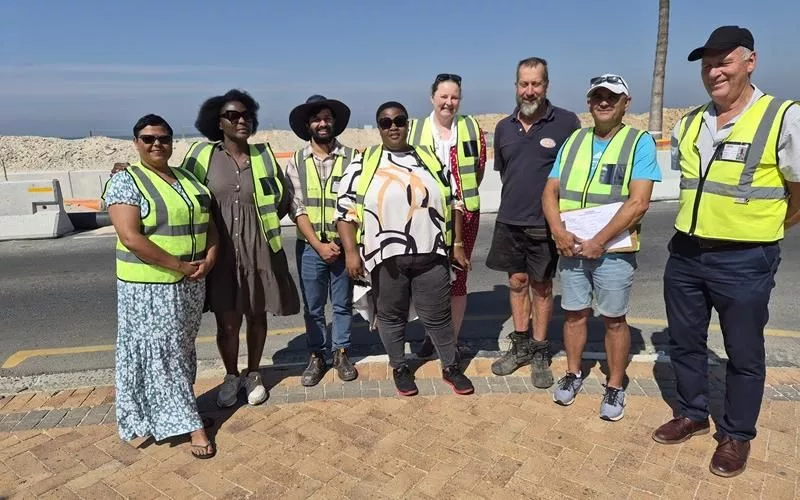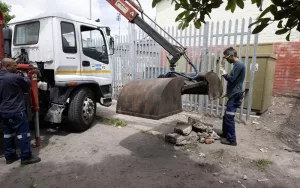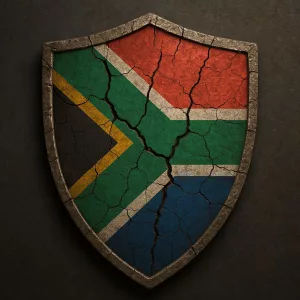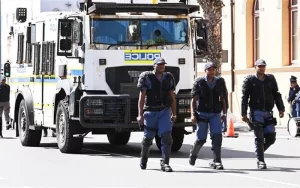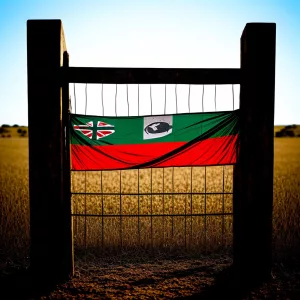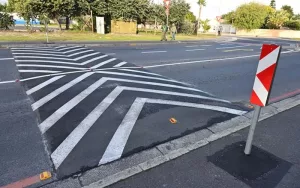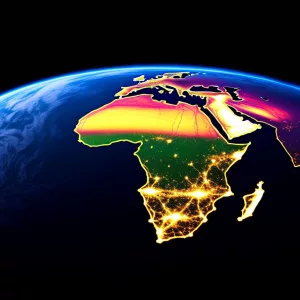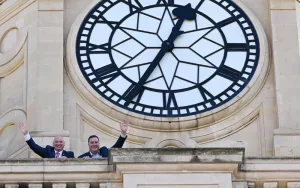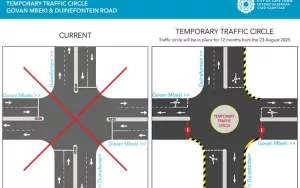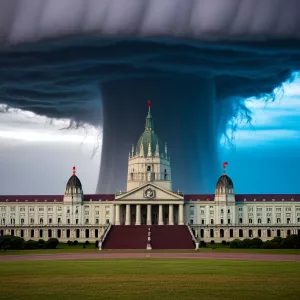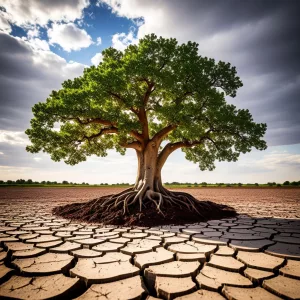{“summary”: “Mosterd’s Bay at Strand Beach is closing from December 15, 2025, to January 15, 2026. This is for building a strong seawall, keeping everyone safe from big machines. Don’t worry, there are other lovely beaches and fun things to do nearby. Always swim where lifeguards are, and keep an eye on the kids for a super safe holiday!”}
Summer Preparations: City Energy Teams Overhaul Substations in Anticipation of Peak Season
The city’s energy teams are getting ready for summer by cleaning up important power stations. This helps keep the lights on when it gets hot and many people use air conditioning. They are also working with people in the community to report problems and keep the power safe. This way, everyone can have a steady power supply all summer long.
South Africa’s Parliament is working hard to keep its members safe from growing threats. They have strong security rules and work with the police. They also have special security teams and look into new technology to help. This way, lawmakers can do their important jobs without fear, which keeps our democracy strong and healthy.
Cape Town is stepping up its game to keep everyone safe during the festive season! With the help of over 4,000 police officers and smart technology like CCTV cameras, the city is creating a safer space for both locals and visitors. This teamwork between the City, SAPS, and the Western Cape Government marks a bright new chapter in public safety. The community is also getting involved, joining forces in neighborhood watches and meetings to share ideas. Together, they are building a festive atmosphere full of unity, hope, and safety for all.
The story of 49 Afrikaner farmers fasttracked as refugees to the U.S. under the Trump administration reveals a sharp divide between politics and true humanitarian aid. While officials claimed these farmers faced racial persecution in South Africa, critics saw this as selective compassion, since many other groups fleeing violence, like Uyghurs or Black South Africans, were not given the same chance. The debate exposed deeper questions about who really deserves refuge and highlighted how political motives can shape who gets protection. In the end, this case shines a spotlight on the complicated, often unfair nature of global refugee policies.
Cape Town’s new Traffic Calming Policy is a bold effort to make city streets safer and friendlier for everyone, especially children and the elderly. It listens closely to local communities and uses smart, creative designs to slow down cars and protect people in busy neighborhoods. By speeding up how many improvements happen each year, the city aims to spread safety across all areas, turning streets into lively, welcoming spaces. This fresh approach invites everyone to help shape a city where moving around feels safe, easy, and joyful.
Ouzeri is a sparkling gem in Cape Town’s dining scene, bringing the warm flavors of Greece and Cyprus to life. With its unique dishes crafted by Chef Nic Charalambous, the restaurant has gained global fame, being recognized in the World’s 50 Best Discovery list. Opened in 2022, Ouzeri’s cozy atmosphere and carefully made meals, like olive bread and stuffed cabbage, invite everyone to experience the joy of Mediterranean cooking. This restaurant not only highlights Cape Town’s rich food culture but also shows how passion and tradition can create something truly special.
Power, Policy, and Connectivity: The EFF’s Revolt Against Starlink’s Rumored Entry into South Africa
Starlink’s rumored arrival in South Africa has sparked fierce debate, mainly because the EFF fears it might bypass important laws meant to empower Black South Africans and protect the nation’s independence. While Starlink promises fast internet, especially for rural areas hungry for better connections, critics worry it could bring foreign control and damage South Africa’s hardwon social justice. The EFF accuses the government of rushing deals that favor global companies over the people’s rights. This clash reveals a deeper struggle: how South Africa balances new technology with its history and fight for true equality.
Julius Malema, leader of South Africa’s Economic Freedom Fighters, is famous for singing the protest song “Kill the Boer,” which stirs strong emotions because of its history tied to fighting apartheid. His bold and fiery words keep alive the deep struggles over land, race, and justice in South Africa. While some see his songs as violent and divisive, Malema and his supporters believe they are powerful symbols of resistance against unfairness. His speeches and music continue to fuel heated debates both inside South Africa and around the world, showing how the country’s past still shapes its present.
The Cape Town City Hall clock, first installed in 1905, is a proud symbol of the city’s history and spirit. After years of wear, its 2025 restoration brought back its beautiful Westminster chimes and precise timekeeping, reconnecting the city to its rich past. Standing tall beneath Table Mountain, the clock now rings out over the Grand Parade once again, marking moments of celebration and reflection for all Cape Town’s people. This revival not only repairs a machine but also renews a cherished connection between generations, lighting up the heart of the city with tradition and hope.
Cape Town has set up a temporary traffic circle at the busy intersection of Govan Mbeki and Duinefontein to make driving safer and smoother while big roadworks happen. This roundabout helps cut down traffic jams and accidents by keeping cars moving in a steady flow. It’s part of a bigger plan to improve public transport and connect neighborhoods better. Though temporary, this traffic circle is a step toward a future where getting around Cape Town is easier and faster for everyone.
When Donald Trump met South Africa’s President Cyril Ramaphosa, tensions flared over a painful and controversial chant, “Kill the Boer,” tied to South Africa’s troubled history and ongoing land struggles. Trump, worried about violence against white farmers, pressed Ramaphosa hard, showing videos and demanding answers. Ramaphosa responded calmly but highlighted how complex and sensitive the issue really is, pointing out the gap between fears and facts. This clash revealed deep differences in how the two countries see protest, history, and justice and showed how words can spark powerful global debates.
In the heart of South African politics, a fiery clash unfolds between Julius Malema and President Cyril Ramaphosa over a meeting with billionaire Elon Musk. Malema accuses Ramaphosa of giving a platform to Musk, whom he labels a racist, raising alarms about South Africa’s identity and sovereignty. This dramatic confrontation reveals deep historical tensions and highlights the struggle for accountability in today’s global landscape. As voices clash in parliament, the nation grapples with its past and the complexities of modern diplomacy, making this encounter a powerful reflection of South Africa’s ongoing journey.
Many Afrikaners face tough times in South Africa, but many still choose to stay because they feel deeply connected to their land and culture. While some leave, seeking safety and comfort abroad, most keep building their lives, communities, and traditions at home. They meet challenges with hope and strength, showing a quiet courage and love for their country. Their story is one of resilience and faith in South Africa’s future.
New Directions: South Africa, the United States, and the Changing Landscape of Global Partnerships
President Cyril Ramaphosa’s visit to the United States is a big moment for South Africa as it tries to balance old friendships with the West and new ties with countries like China and Russia. The talks in Washington focus on trade, investment, and building respect between the nations, even as the world changes fast. South Africa wants to keep its own path, staying independent while seeking partnerships that help its people grow. This visit shows the art of diplomacy careful steps that shape a future both countries can share.
Ouzeri is a charming CypriotGreek restaurant in Cape Town that brings the warm flavors of the Mediterranean to life. Opened in 2022, it’s already recognized as one of the World’s 50 Best Discovery restaurants, thanks to chefowner Nic Charalambous’s dedication to authentic recipes from his grandparents. The restaurant offers unique dishes like savory olive bread and stuffed cabbage leaves, all in a cozy, welcoming atmosphere that feels like a hug. With its focus on fresh ingredients and sustainability, Ouzeri is not just a place to eat; it’s a delightful journey into the heart of Mediterranean culture.

